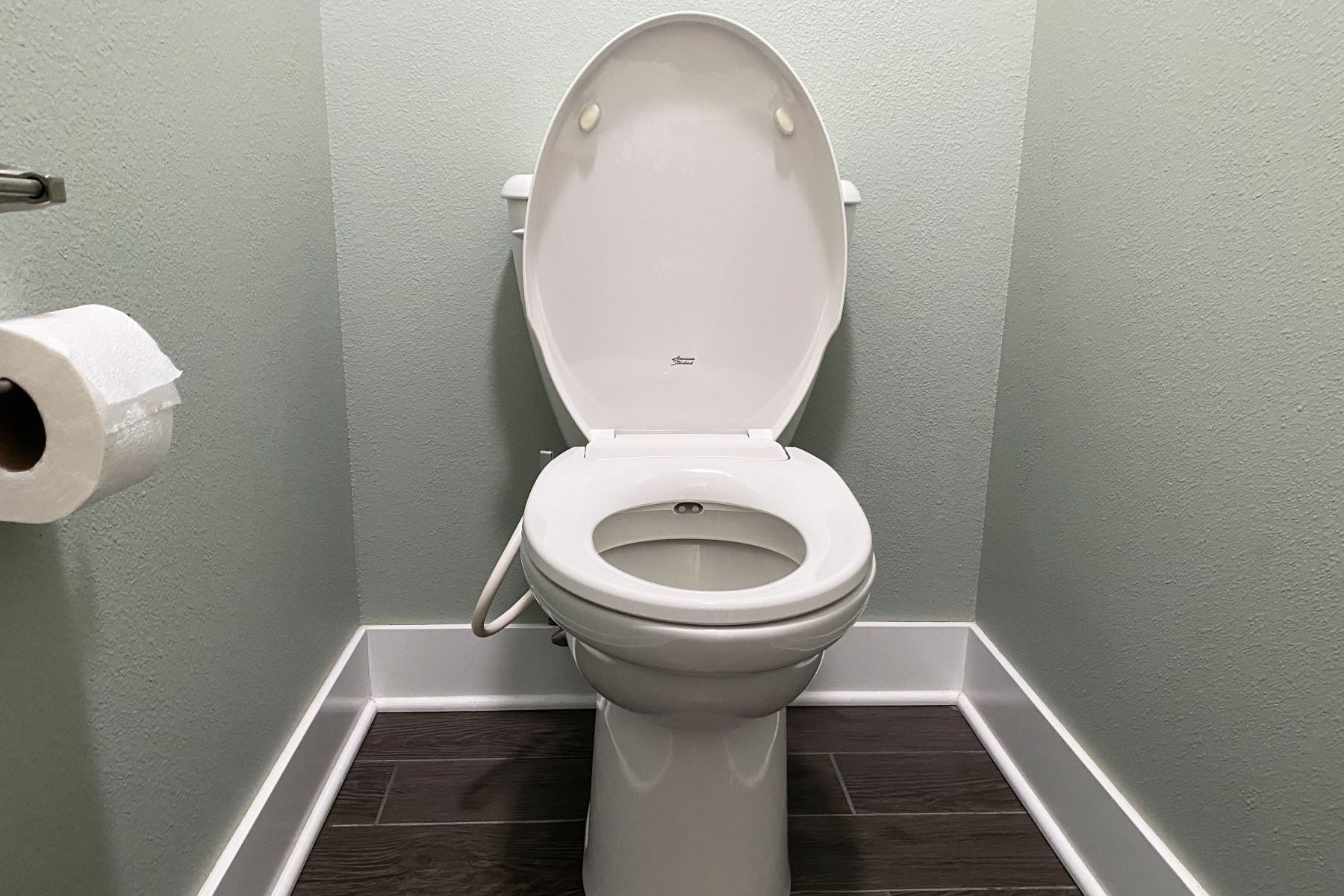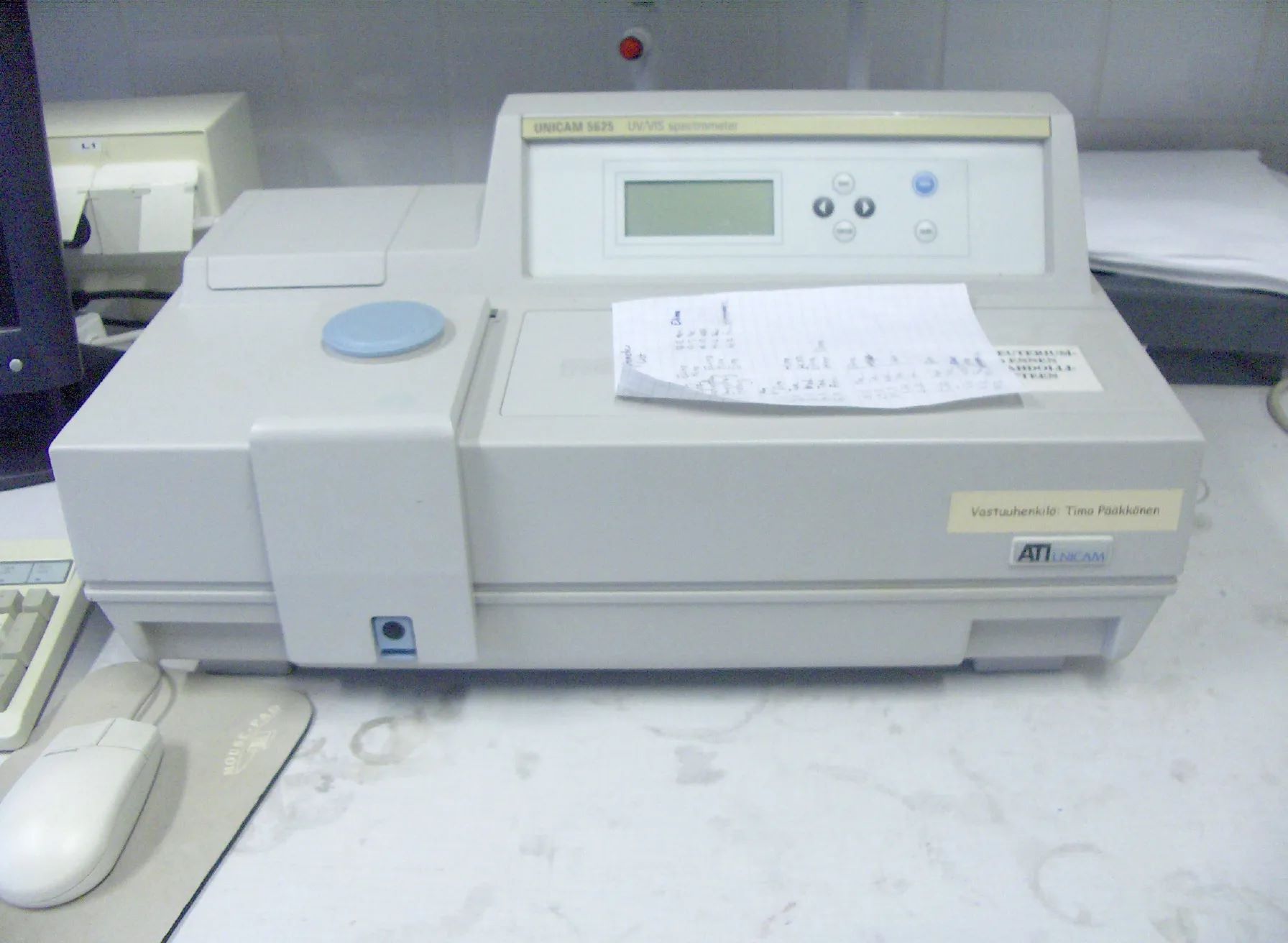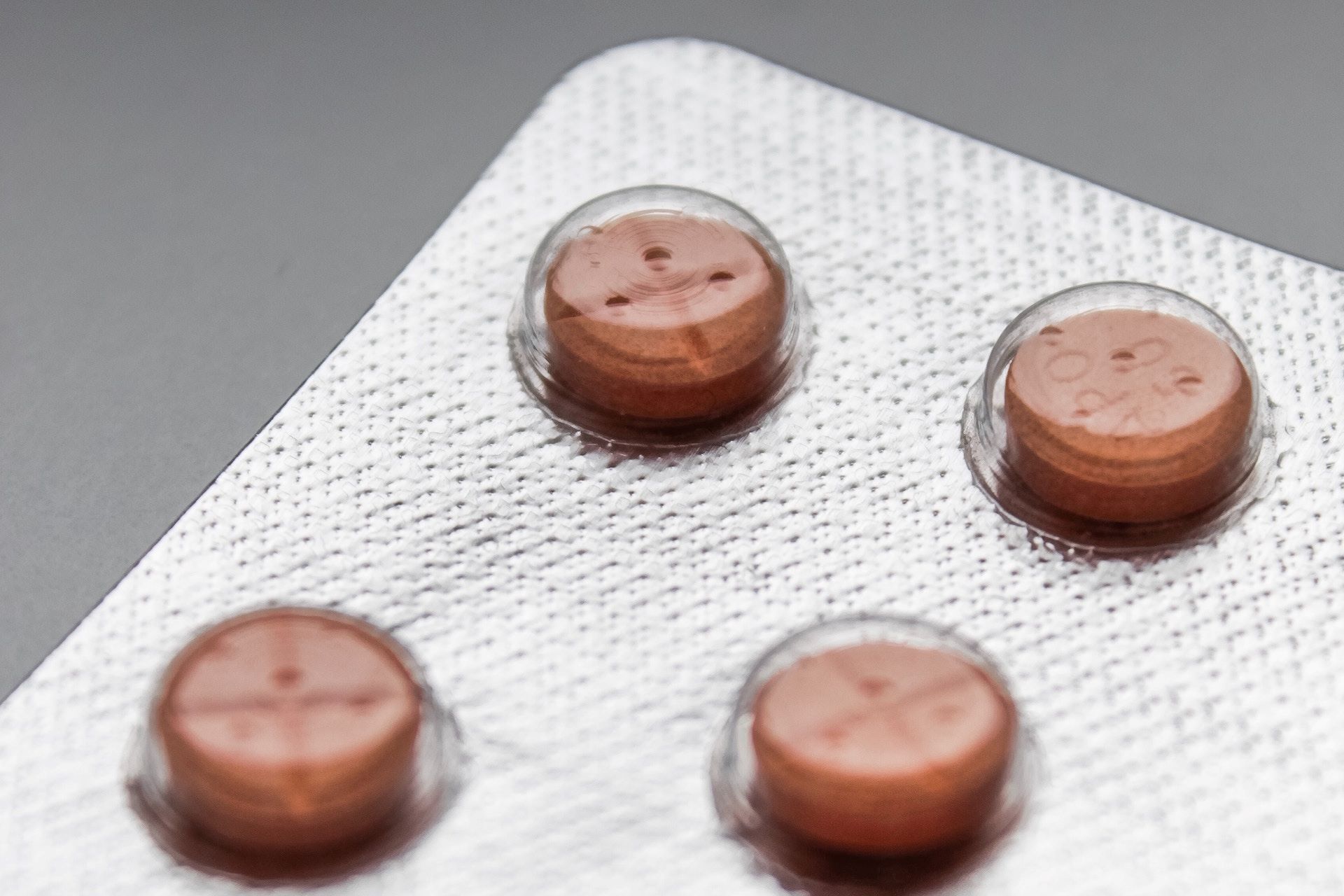Home>Health and Wellness>Bidet Sprayer Vs. Toilet Paper: The Ultimate Showdown!


Health and Wellness
Bidet Sprayer Vs. Toilet Paper: The Ultimate Showdown!
Published: February 9, 2024
Discover the health and wellness benefits of bidet sprayers versus traditional toilet paper. Make the switch for a cleaner, more hygienic bathroom experience.
(Many of the links in this article redirect to a specific reviewed product. Your purchase of these products through affiliate links helps to generate commission for Regretless.com, at no extra cost. Learn more)
Table of Contents
Introduction
In the realm of personal hygiene, the debate between bidet sprayers and traditional toilet paper has sparked numerous discussions. Both options have their staunch advocates, each touting the benefits and drawbacks of their preferred method. The bidet sprayer, a modern take on the traditional bidet, has gained popularity for its ability to provide a thorough and refreshing cleanse. On the other hand, toilet paper, a staple in bathrooms worldwide, offers convenience and familiarity.
As we delve into the bidet sprayer versus toilet paper showdown, it's important to consider various factors, including hygiene, environmental impact, cost, and overall user experience. By examining these aspects, we can gain a comprehensive understanding of the strengths and limitations of each option. Whether you're a staunch supporter of the bidet sprayer or a loyal advocate of toilet paper, this exploration aims to shed light on the intricacies of this age-old debate. So, let's embark on this enlightening journey to uncover the nuances of bidet sprayers and toilet paper, ultimately guiding you toward a well-informed decision for your personal hygiene needs.
Bidet Sprayer: The Pros and Cons
The bidet sprayer, also known as a handheld bidet or bidet shower, has gained traction as a modern, efficient, and environmentally friendly alternative to traditional toilet paper. Let's delve into the advantages and disadvantages of this innovative hygiene solution.
Pros
-
Enhanced Hygiene: One of the most compelling advantages of bidet sprayers is their superior cleansing capability. The gentle yet powerful spray effectively removes residue, providing a thorough and refreshing cleanse. This promotes a higher level of personal hygiene and a cleaner feeling after each use.
-
Reduction of Irritation: Bidet sprayers are particularly beneficial for individuals with sensitive skin or those prone to irritation. The gentle water stream minimizes friction and reduces the risk of skin irritation, making it a preferred choice for individuals with skin sensitivities.
-
Eco-Friendly: In an era of heightened environmental consciousness, bidet sprayers stand out as a sustainable option. By significantly reducing the consumption of toilet paper, they contribute to a decrease in paper waste and environmental impact.
-
Versatility: The versatility of bidet sprayers is another notable advantage. They can be used for a variety of purposes, such as cleaning the toilet bowl or even bathing pets, showcasing their multifunctional utility.
-
Cost-Efficient: While the initial investment in a bidet sprayer may seem significant, it is a cost-efficient option in the long run. The reduction in toilet paper usage leads to substantial savings over time, making it a financially prudent choice.
Cons
-
Initial Adjustment Period: For individuals accustomed to using toilet paper, transitioning to a bidet sprayer may require an adjustment period. The shift in routine and technique may pose a temporary challenge for some users.
-
Installation Considerations: Installing a bidet sprayer necessitates minor plumbing work, which could be daunting for those with limited DIY skills. However, with the assistance of professional installation services, this hurdle can be easily overcome.
-
Space Constraints: In smaller bathrooms, the addition of a bidet sprayer may pose spatial challenges. However, compact and sleek designs are available, catering to diverse bathroom layouts.
-
Dependency on Water Supply: The functionality of bidet sprayers is contingent on a reliable water supply. In regions with water scarcity or inconsistent supply, this dependency may pose a limitation.
-
Maintenance: While bidet sprayers are relatively low-maintenance, they require periodic cleaning and upkeep to ensure optimal functionality and hygiene.
In weighing the pros and cons of bidet sprayers, it becomes evident that they offer a myriad of benefits, encompassing enhanced hygiene, eco-friendliness, and long-term cost savings. However, potential challenges such as the adjustment period and installation considerations should be considered when contemplating the adoption of this innovative hygiene solution.
Toilet Paper: The Pros and Cons
Toilet paper, a ubiquitous staple in bathrooms worldwide, has long been the primary choice for personal hygiene after using the restroom. Its convenience and familiarity have solidified its position as the go-to option for countless individuals. Let's delve into the advantages and drawbacks of this traditional hygiene essential.
Pros
-
Convenience and Accessibility: Perhaps the most prominent advantage of toilet paper is its widespread availability and ease of use. Its compact and portable nature makes it a convenient option for maintaining personal hygiene not only at home but also while traveling or in public restrooms.
-
Familiarity and Comfort: For many, the tactile sensation and familiarity of using toilet paper contribute to a sense of comfort and routine. Its soft texture and ease of use have ingrained it as a preferred choice for personal hygiene for generations.
-
No Installation Required: Unlike bidet sprayers, toilet paper requires no installation or additional equipment. This simplicity makes it an accessible and hassle-free option for individuals of all ages.
-
Affordability and Accessibility: Toilet paper is widely available at varying price points, catering to diverse budgetary constraints. Its affordability and accessibility make it a practical choice for individuals across different socioeconomic backgrounds.
-
Biodegradability: Many toilet paper products are designed to be biodegradable, contributing to environmental sustainability when disposed of responsibly.
Cons
-
Limited Cleansing Ability: While toilet paper effectively removes solid waste, it may not provide the same level of thorough cleansing as a bidet sprayer. This limitation can lead to a less comprehensive feeling of cleanliness after use.
-
Potential for Irritation: For individuals with sensitive skin, the friction caused by toilet paper may lead to discomfort and irritation, especially with prolonged or frequent use.
-
Environmental Impact: The production and consumption of toilet paper contribute to deforestation and environmental strain. While efforts are being made to promote sustainable practices in the industry, the environmental impact remains a concern.
-
Cost Over Time: Despite its initial affordability, the recurring cost of purchasing toilet paper can accumulate over time, especially for households with high usage.
-
Dependency on Supply: In certain situations, such as outdoor activities or emergencies, the reliance on toilet paper for personal hygiene may pose challenges due to its limited availability.
In considering the pros and cons of toilet paper, it is evident that its convenience, affordability, and familiarity are balanced by limitations related to cleansing efficacy, environmental impact, and potential skin irritation. Understanding these nuances can guide individuals in making informed choices regarding their personal hygiene preferences.
Environmental Impact
The environmental impact of bidet sprayers and toilet paper is a critical consideration in the ongoing debate surrounding personal hygiene choices. Understanding the ecological footprint of these options is essential for individuals seeking to align their hygiene practices with sustainable and environmentally conscious principles.
Bidet Sprayers
Bidet sprayers present a compelling case for environmental sustainability. By significantly reducing reliance on toilet paper, bidet sprayers contribute to a substantial decrease in paper consumption. This reduction directly translates to a positive environmental impact, as it mitigates the strain on global forests and minimizes the carbon footprint associated with paper production.
Furthermore, the water usage of bidet sprayers is often misconceived as a significant drawback in terms of environmental impact. However, when compared to the water-intensive process of manufacturing and transporting toilet paper, the overall water footprint of bidet sprayers remains relatively minimal. Additionally, advancements in water-efficient bidet sprayer designs and the use of recycled water further bolster their eco-friendly credentials.
In regions where water scarcity is a concern, bidet sprayers can be integrated with water-saving mechanisms, ensuring responsible water usage without compromising hygiene. This adaptability underscores the potential for bidet sprayers to align with sustainable practices, making them a viable choice for environmentally conscious individuals.
Toilet Paper
The environmental impact of toilet paper stems from its production, which relies heavily on virgin wood pulp sourced from forests. This extraction process contributes to deforestation, habitat loss, and disruption of ecosystems, highlighting the significant ecological toll of traditional toilet paper manufacturing.
While efforts to promote sustainable forestry and the use of recycled materials in toilet paper production have gained traction, the industry's overall environmental impact remains a concern. The carbon emissions, water usage, and chemical inputs associated with toilet paper production underscore the need for continued efforts to minimize its ecological footprint.
Furthermore, the disposal of toilet paper, particularly in high-usage environments such as public restrooms and commercial facilities, poses challenges in waste management and environmental sustainability. Despite advancements in biodegradable toilet paper options, the widespread adoption of bidet sprayers presents a compelling opportunity to reduce the environmental strain associated with toilet paper usage.
In evaluating the environmental impact of bidet sprayers and toilet paper, it becomes evident that bidet sprayers offer a more sustainable and eco-friendly approach to personal hygiene. By minimizing paper consumption, reducing deforestation, and promoting responsible water usage, bidet sprayers emerge as a proactive choice for individuals seeking to align their hygiene practices with environmental stewardship.
Cost Comparison
When evaluating the cost aspect of bidet sprayers versus traditional toilet paper, it is essential to consider both the initial investment and the long-term financial implications.
Bidet Sprayers
The initial cost of purchasing and installing a bidet sprayer may seem relatively higher compared to acquiring a supply of toilet paper. However, this upfront investment pales in comparison to the long-term savings facilitated by reduced reliance on toilet paper. Bidet sprayers significantly curtail the ongoing expense of purchasing toilet paper, leading to substantial cost savings over time. Additionally, the durability and longevity of bidet sprayers contribute to their cost-efficiency, as they require minimal maintenance and have a prolonged lifespan.
Toilet Paper
While toilet paper is initially more budget-friendly, its recurring cost can accumulate significantly over time, especially for households with high usage. The continuous purchase of toilet paper presents an ongoing financial commitment, making it a less cost-effective option in the long run. Moreover, fluctuations in the price of toilet paper due to market dynamics and external factors can further impact its long-term affordability.
In essence, the cost comparison between bidet sprayers and toilet paper reveals that while bidet sprayers entail a higher initial investment, they offer substantial long-term savings. Conversely, the seemingly lower upfront cost of toilet paper is offset by its continuous and escalating expense. Therefore, individuals seeking a financially prudent and sustainable personal hygiene solution may find that bidet sprayers present a compelling cost-efficient alternative.
The cost aspect is a pivotal consideration for individuals aiming to make informed decisions regarding their personal hygiene practices. By weighing the upfront expenses and long-term financial implications, individuals can discern the cost-effectiveness of bidet sprayers and toilet paper, aligning their choices with their budgetary considerations and sustainability goals.
Hygiene and Health Considerations
Hygiene and health are paramount considerations when evaluating personal hygiene practices, making it essential to delve into the implications of bidet sprayers and toilet paper on these crucial aspects.
Bidet Sprayers
The use of bidet sprayers presents compelling advantages in terms of hygiene and health. Their superior cleansing capability ensures a thorough and refreshing cleanse, promoting a heightened level of personal hygiene. The gentle yet effective water stream removes residue with precision, reducing the risk of bacterial buildup and potential skin irritation. For individuals with sensitive skin or those prone to discomfort from friction, bidet sprayers offer a gentle and soothing cleansing experience, minimizing the likelihood of irritation or abrasion.
Furthermore, bidet sprayers contribute to a cleaner and more hygienic restroom environment by minimizing the reliance on toilet paper, which can harbor bacteria and contribute to potential cross-contamination. This reduction in contact with potentially unhygienic surfaces aligns with best practices for maintaining a sanitary restroom environment.
From a health perspective, the thorough cleansing facilitated by bidet sprayers can contribute to a reduced risk of certain hygiene-related issues, such as urinary tract infections and skin irritation. The gentle and precise water stream ensures effective cleansing without causing trauma to sensitive areas, promoting overall genital health and comfort.
Toilet Paper
While toilet paper serves as a familiar and accessible option for personal hygiene, its limitations in terms of cleansing efficacy and potential for skin irritation warrant consideration. Toilet paper may not provide the same level of thorough cleansing as bidet sprayers, leading to a less comprehensive feeling of cleanliness after use. The friction caused by toilet paper can also pose a risk of skin irritation, particularly for individuals with sensitive skin or those prone to dermatological conditions.
Moreover, the potential for incomplete cleansing with toilet paper may contribute to hygiene-related concerns, such as residual bacteria and discomfort. In public restroom settings, the use of toilet paper may present challenges in maintaining optimal hygiene, as it may not afford the same level of thorough cleansing as bidet sprayers.
In evaluating the hygiene and health considerations of bidet sprayers and toilet paper, it becomes evident that bidet sprayers offer a more thorough and hygienic cleansing experience, with potential benefits for overall genital health and comfort. The gentle and precise water stream provided by bidet sprayers promotes a higher level of personal hygiene while minimizing the risk of skin irritation, making them a compelling choice for individuals prioritizing hygiene and health in their personal care routines.
Conclusion
In the ultimate showdown between bidet sprayers and traditional toilet paper, it is evident that both options present distinct advantages and limitations. The bidet sprayer, with its superior cleansing capability, eco-friendliness, and potential for long-term cost savings, emerges as a compelling modern solution for personal hygiene. Its ability to promote enhanced hygiene, minimize skin irritation, and align with sustainable practices positions it as a proactive choice for individuals seeking a comprehensive and refreshing cleansing experience.
On the other hand, traditional toilet paper, with its convenience, familiarity, and widespread accessibility, remains a prevalent choice for personal hygiene. While it offers ease of use and initial affordability, its limitations in terms of cleansing efficacy, potential for skin irritation, and environmental impact underscore the need for a critical evaluation of its long-term implications.
In the realm of environmental impact, bidet sprayers shine as eco-friendly alternatives, significantly reducing paper consumption and contributing to responsible water usage. Their potential to mitigate deforestation and promote sustainable hygiene practices aligns with the global imperative for environmental stewardship. Conversely, the environmental strain associated with toilet paper production and disposal underscores the need for sustainable alternatives, making bidet sprayers a proactive choice for individuals aiming to minimize their ecological footprint.
From a cost perspective, bidet sprayers offer a compelling proposition, with their initial investment offset by substantial long-term savings. The reduction in toilet paper consumption leads to financial prudence and sustainability, positioning bidet sprayers as a cost-efficient and forward-thinking choice for personal hygiene.
Hygiene and health considerations further underscore the advantages of bidet sprayers, with their thorough cleansing capability, reduced risk of skin irritation, and potential benefits for overall genital health. The gentle and precise water stream provided by bidet sprayers promotes a heightened level of personal hygiene, contributing to a cleaner and more hygienic restroom environment.
In conclusion, the bidet sprayer emerges as a modern, efficient, and environmentally friendly alternative to traditional toilet paper, offering a comprehensive and refreshing cleansing experience. Its potential to enhance personal hygiene, minimize environmental impact, and promote long-term cost savings positions it as a proactive choice for individuals seeking a sustainable and thorough approach to personal hygiene. As individuals navigate the realm of personal hygiene choices, the bidet sprayer stands as a compelling testament to innovation, sustainability, and holistic well-being.












